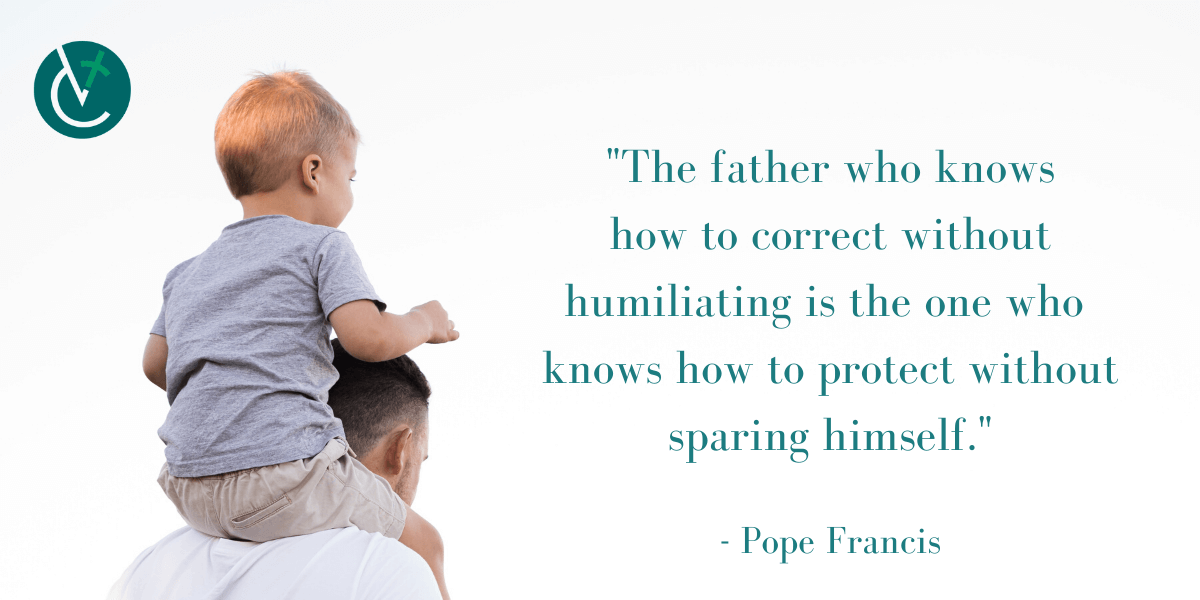
Fathers’ Day reflections
Last September I competed in my first Spartan Beast race at Killington mountain. It’s considered the hardest of all the Spartan races in the country — 14 miles of grueling terrain, more than 30 challenging obstacles and an elevation gain of more than 6500 feet. It left me bruised and sore for many weeks. It was physically challenging for sure, but mentally challenging as well. A particular frustration was my inability to complete certain obstacles (all related to pulling myself up a rope or wall) which resulted each time in the laborious 30 Marine “burpees.”
As I think about fatherhood in 2020, particularly in light of our current Covid situation, the experience on Killington mountain may be a useful analogy. Indeed, there are some things that I do fairly well as a father, but other areas where I struggle. The times when I falter are many, and as a father of five (four teenage boys and one 7-year-old daughter), I know firsthand the difficulties and challenges facing our children through the culture, a paucity of morally sound friendships and the addictive-inducing qualities of the innumerable gadgets surrounding us all. Navigating the current troubled waters is a challenge to say the least.
St. John Paul II reminds us, “As the family goes, so goes the world.” I might add: As the father goes, so, too, goes the family.
There is a great deal of empirical and sociological evidence that many of the societal problems we are facing today are rooted in a dissolution of fatherhood and the lack of good male role models — now occurring cyclically throughout the country, particularly in our inner cities. Pope Benedict said, “The crisis of father-hood we are experiencing today is an element, perhaps the most important element, threatening man in his humanity.”
Thankfully, we have been given guidance and inspiration through Christ’s revelation of God as Father. Pope Benedict said at another time, “Perhaps people today fail to perceive the beauty, greatness and profound consolation contained in the word ‘father’ with which we can turn to God in prayer because today the father figure is often not sufficiently present and all too often is not sufficiently positive in daily life. … From Jesus Himself, from His filial relationship with God, we can learn what ‘father’ really means and what is the true nature of the Father who is in heaven. … In the Gospel, Christ shows us who is the Father, and as He is a true Father we can understand true fatherhood and even learn true fatherhood.”
Jesus showed us how the Father takes delight in His children (Mt 3:17), loves unconditionally (Mt 5:45), is provident and responsible (Mt 6:26), pays close and caring attention (Mt 6:8), forgives (Lk 6:36, 15:11-32), teaches (Mt 11:25-26, 16:17, Jn 6:44), lovingly disciplines (Heb 12:5-11), works hard (Jn 5:17, 36), and shares his life (Jn 6:40). All of these are guideposts for earthly dads.
Pope Francis reminds us that “a good father knows how to forgive from the depths of his heart. Certainly, he also knows how to correct with firmness: he is not a weak father, submissive and sentimental. The father who knows how to correct without humiliating is the one who knows how to protect without sparing himself.”
More fatherly guidance is given to us by Pope Francis who says that God sets the father in the family so that by the gifts of his masculinity he can be “close to his wife and share everything, joy and sorrow, hope and hardship.”
He continues: “And to be close to his children as they grow — when they play and when they work, when they are carefree and when they are distressed, when they are talkative and when they are silent, when they are daring and when they are afraid, when they stray and when they get back on the right path. To be a ather who is always present. When I say ‘present,’ I do not mean ‘control-ling.’ Fathers who are too controlling overshadow their children, they don’t let them develop.’ Some fathers feel they are useless or unnecessary, but the fact is that ‘children need to find a father waiting for them when they return home with their problems. They may try hard not to admit it, not to show it, but they need it.’ It is not good for children to lack a father and to grow up before they are ready.” (Taken from his apostolic exhortation “Amoris Laetitia: On Love in the Family.”)
On Killington mountain, I fell down, at points stopped and thought, “I can’t do this,” and, at other moments was not able to overcome some of the obstacles set before me. As fathers, we often have the same moments where the tasks, challenges and calling seems insurmountable. We do fall down, fail and are not as good as we would like to be. Yet, through grace, the sacraments and the revelation of God as Father through the person of Jesus Christ, we are offered tremendous aids to persevere through the many trials and tribulations faced in our world today.
On this Father’s Day 2020, I give thanks for my own father, Donald Gavin (who passed away more than 20 years ago), the gift of fatherhood that God has given me many times, but, most especially to my Father in heaven who protects and guides my life so that I may become the best father He has called me to be.
Happy Father’s Day to all our fathers!
—Bill Gavin is director of youth and young adult ministry for the Diocese of Burlington.
—Originally published in the Summer 2020 issue of Vermont Catholic magazine.

